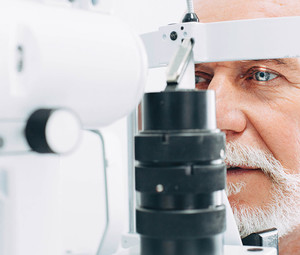All Categories
Featured
Table of Contents

Routine eye evaluations are necessary for keeping great vision and identifying prospective eye wellness issues early. The regularity of these examinations can vary dramatically based on an individual's age, way of life, and total wellness. Recognizing the advised schedule for eye exams can aid guarantee that people of any ages obtain proper care and monitoring for their eye health.
Infants and Toddlers (0-2 Years)
For kids and babies, eye exams are vital for detecting any kind of prospective vision problems beforehand. The American Academy of Ophthalmology recommends that a youngster's initial eye test should take place at around six months of age. Throughout this initial go to, the eye care professional will evaluate the youngster's aesthetic advancement and check for any noticeable eye concerns.Following this initial test, it is recommended that youngsters have another eye test at age three. This browse through will concentrate on evaluating the child's overall aesthetic function, including eye placement and the ability to track items. If no issues are identified, the next exam must be scheduled prior to the child starts institution, usually around age five or 6.
School-Aged Youngsters (6-18 Years)
Routine eye tests should be scheduled every one to 2 years once children get to institution age. Vision is essential for finding out and growth, and several institutions perform vision testings. Nonetheless, these screenings do not change a comprehensive eye test by an eye treatment specialist.For children associated with sporting activities or tasks requiring considerable aesthetic focus, yearly eye examinations might be recommended. Furthermore, if a child exhibits indications of vision problems-- such as difficulty checking out, squinting, or regular migraines-- a check out to the eye physician must be set up asap.
Young Grownups (19-39 Years)
Young adults normally have fewer vision adjustments than older age, but normal eye tests remain important. The basic suggestion is to schedule an eye examination every two years during this period. Nonetheless, people with certain danger aspects-- such as a family members history of eye disease, diabetes mellitus, or those who use contact lenses-- ought to consider yearly eye exams.Furthermore, those who invest considerable time on digital tools may experience electronic eye strain. If symptoms such as dryness, tiredness, or obscured vision take place, it might be wise to see an eye care specialist earlier.
Adults (40-64 Years)
Adults aged 40 to 64 ought to schedule eye examinations every one to two years. Eye exams can also assist detect other typical age-related problems such as glaucoma, cataracts, and macular degeneration.If people in this age group have danger aspects like hypertension or diabetes, they may need more frequent assessments to monitor their eye health very closely.
Senior Citizens (65 Years and Older)
For seniors, routine eye examinations become even a lot more essential. The American Optometric Association suggests that people aged 65 and older have an eye exam at the very least when a year.Final thought.
Understanding the proper timetable for eye examinations based upon age is important for maintaining optimum eye health throughout life. From babies to senior citizens, regular eye exams play a vital function in identifying issues early and making sure that vision remains sharp. By adhering to these standards and talking to an eye treatment professional, individuals can take aggressive actions toward maintaining their vision and general health and wellness. Whether it's a kid's very first visit or an elderly's yearly examination, focusing on eye treatment is a financial investment in lifelong well-being.Latest Posts
A Luxurious Getaway: The Claridge Indoor Pool
Published Feb 05, 25
1 min read
Furniture Styles Living Room
Published Jan 23, 25
0 min read
Protect Your Space with Top-Quality Automated Entry Solutions from Montana Fence
Published Dec 01, 24
1 min read